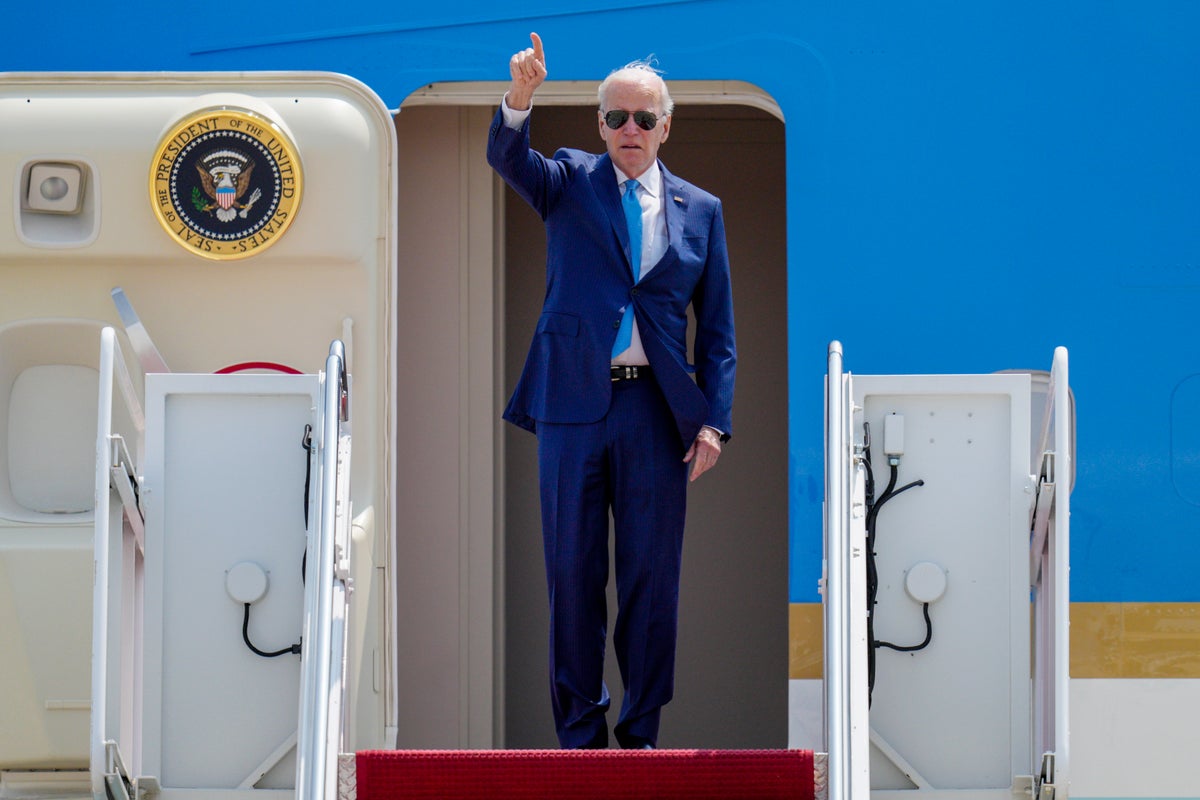
President Joe Biden 's reelection campaign is vowing to hold the states that won him the White House in 2020 but also compete in places it lost like North Carolina and increasingly Republican-dominated Florida, providing what it says are “a number of viable pathways to the 270 electoral votes” needed to clinch four more years.
Offering her first extensive comments on strategy since she was named manager of Biden's campaign last month, Julie Chavez Rodriguez wrote in a memo to “interested parties” that the 2024 race presents “significant opportunities to grow Democratic support.” It was released while Biden was traveling in Japan, but he is skipping previously planned, subsequent stops in Australia and Papua New Guinea to focus on debt limit talks in Washington.
Rodriguez said the reelection campaign is planning early investments to try to retain battleground states Biden won in 2020 including Michigan, Wisconsin, Pennsylvania, Nevada and New Hampshire, and to hold Georgia and Arizona, which hadn't voted Democratic in a presidential race in decades prior to three years ago.
But the campaign will also “look to expand the map even further in states like North Carolina and Florida” and Rodriguez said both would be included in a “7-figure" advertising buy that encompassed investments in a string of swing states.
Biden’s reelection campaign is built around asking Americans to allow him to “finish the job” he started, and has sought to paint “extreme” Republicans like former President Donald Trump and supporters of his “Make America Great Again” movement as threats to core American political values.
Trump is now seeking the White House for a third time, and while Rodriguez's memo did not mention him by name, it did predict Biden would “prevail over the MAGA extremist agenda once again.”
Biden's political advisers have long argued that Biden beat Trump once and can do so again. If someone else captures the GOP presidential nomination — like Florida Gov. Ron DeSantis, who is widely seen as a top Trump alternative — Biden's team maintains the same strategy can work since most top Republicans have done little to distance themselves from the MAGA movement.
Though Rodriguez's memo makes no mention of it, contrasting Biden with his opponent may be the president's strongest reelection tactic. An Associated Press-NORC Center for Public Affairs Research poll last month found that only about half of Democrats think the 80-year-old Biden should run again, though 81% said they would at least probably support him in the 2024 general election if he is the nominee.
The memo says the reelection campaign plans to spread its message online and through in-person contacts with voters, but will rely heavily on leveraging voters' existing social circles.
“While trust in the media may have eroded, trust in people’s personal networks has never been stronger,” Rodriguez wrote. She promised that the campaign will “engage early and often” with its traditional base supporters among women, as well as Black, Hispanic and Asian American voters, and young people who didn't turn out for the 2022 midterms. The memo also says organized labor "will be core to our electoral success.”
Biden's reelection campaign says it plans to try for gains among targeted groups of voters during next year's race. That includes building on 2020, when Biden “made small, but critical gains among rural and white working class voters in battleground states." It further notes that Democrats saw support rise slightly in those demographics during last year's midterms in “states like Arizona, Michigan, Pennsylvania, Nevada and Wisconsin, and remain consistent in Georgia and North Carolina.”
The memo says strong suburban support helped lift Biden to the 306 electoral votes he won in 2020, and there could be room for growth among such voters, who may be energized by the Supreme Court's overturning of the Roe v. Wade decision.
National Democrats have remained strongly unified behind Biden. He faces only token opposition in the party's presidential primary from self-help author Marianne Williamson and anti-vaccine activist Robert Kennedy Jr. That means, Chavez wrote, that the reelection campaign "is able to leverage party infrastructure from Day One, including tools, technology and people, which means we aren’t starting from scratch.”







